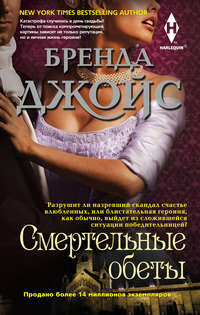
Полная версия
A Rose in the Storm
Whispers sounded from the ramparts. The great drawbridge groaned as it was lowered. Margaret saw some children appear on the battlements above, as she gazed around, suddenly making eye contact with an older woman close to the entry tower. The woman’s eyes widened; instinctively, Margaret smiled.
“’Tis Lady Mary’s daughter!” the old woman cried.
“’Tis Mary MacDougall’s daughter!” another man cried, with more excitement.
“Mary MacDougall’s daughter!” others cried.
Margaret felt her heart skid wildly when she realized what was happening—these good folk remembered her mother, their mistress, whom they had revered and loved, and she was being welcomed by them all now. Her vision blurred.
These were her kin. These were her people, just as Castle Fyne was hers. They were welcoming her, and in return, she must see to their welfare and safety, for she was their lady now.
She smiled again, blinking back the tears. From the ramparts, someone cheered. More cheers followed.
Sir Ranald grinned at her. “Welcome to Castle Fyne, Lady,” he teased.
She quickly wiped her eyes and recovered her composure. “I had forgotten how much they adored my mother. Now I remember that they greeted her this way, with a great fanfare, when I was a child, when she returned here.”
“She was a great lady, so I am not surprised,” Sir Ranald said. “Everyone loved Lady Mary.”
William touched her elbow. “Wave,” he said softly.
She was startled, but she lifted her hand tentatively and the crowd on the ramparts and battlements and in the entry tower roared with approval. Margaret was taken aback. She felt herself flush. “I am hardly a queen.”
“No, but this is your dowry and you are their mistress.” William smiled at her. “And they have not had a lady of the manor in years.”
He gestured, indicating that she should precede him, and lead the way over the drawbridge into the courtyard. Margaret was surprised, and she looked at Sir Ranald, expecting him to lead the way. He grinned again, with a dimple, and then deferentially bowed his head. “After you, Lady Margaret,” he said.
Margaret nudged her mare forward, the crowd cheering again as she crossed the drawbridge and entered the courtyard. She felt her heart turn over hard. She halted her mare and dismounted before the wooden steps leading up to the great hall’s front entrance. As she did, the door opened and several men hurried out, a tall, gray-haired Scot leading the way.
“Lady Margaret, we have been expecting ye,” he said, beaming. “I am Malcolm MacDougall, yer mother’s cousin many times removed, and steward of this keep.”
He was clad only in the traditional linen leine most Highlanders wore, with knee-high boots and a sword hanging from his belt. Although bare-legged, and without a plaid, he clearly did not mind the cold as he came down the steps and dropped to one knee before her. “My lady,” he said with deference. “I hereby vow my allegiance and my loyalty to you above all others.”
She took a deep breath, trembling. “Thank you for your oath of fealty.”
He stood, his gaze now on her face. “Ye look so much like yer mother!” He then turned to introduce her to his two sons, both young, handsome men just a bit older than she was. Both young men swore their loyalty, as well.
William and Sir Ranald had come forward, and more greetings were exchanged. Sir Ranald then excused himself to help Sir Neil garrison their men. William stepped aside with him, and Margaret was distracted, instantly wanting to know what they were discussing, as they were deliberately out of her earshot.
“Ye must be tired,” Malcolm said to her. “Can I show ye to yer chamber?”
Margaret glanced at William—still in a serious and hushed conversation. She felt certain they were discussing the possibility of an enemy scout having been on the hillside above them, watching their movements. “I am tired, but I do not want to go to my chamber just yet. Malcolm, has there been any sign of discord around Loch Fyne lately?”
His eyes widened. “If ye mean have we skirmished with our neighbors, of course we have. One of the MacRuari lads raided our cattle last week—we lost three cows. They are as bold as pirates, using the high seas to come and go as they please! And the day after, my sons found a MacDonald scout just to the east, spying on us. It has been some time, months, truly, since we have seen any MacDonald here.”
She felt herself stiffen. “How do you know that it was a scout from clan Donald?”
Malcolm smiled grimly. “We questioned him rather thoroughly before we let him go.”
She did not like the sound of that, and she shivered.
He touched her arm. “Let me take ye inside, lady, it’s far too cold fer ye to be standing here on such a day, when we have so little sun.”
Margaret nodded, as William returned to her side. She gave him a questioning look but he ignored her, gesturing that she follow Malcolm up the stairs. Disappointed, she complied.
The great hall at the top of the stairs was a large stone chamber with high, raftered ceiling, a huge fireplace on one wall. A few arrow slits let in some scant light. Two large trestle tables were centered in the room, benches on their sides, and three carved chairs with cushioned seats sat before the hearth. Pallets for sleeping were stacked up against the far walls. A large tapestry of a battle scene completed the room, hanging on the center wall.
Margaret sniffed appreciatively. The rushes were fresh and scented with lavender oil. And suddenly she smiled—remembering that the hall had smelled of lavender when she had last been present as a child.
Malcolm smiled. “Lady Mary insisted upon fresh rushes every third day, and she especially liked the lavender. We hoped you would like it, too.”
“Thank you,” Margaret said, moved. “I do.”
The servants they had brought with them were now busy bringing their personal belongings, which filled several large chests, into the hall. Margaret espied her lady’s maid, Peg, who was three years older than she was and married to one of Buchan’s archers. She had known Peg for most of her life, and they were good friends. Margaret excused herself and hurried over to her. “Are you freezing?” she asked, taking her cold hands in hers. “How are your blisters?” She was concerned.
“Ye know how I hate the cold!” Peg exclaimed, shivering. She was as tall and voluptuous as Margaret was slender and petite, with dark auburn hair. She wore a heavy wool plaid over her ankle-length leine, but she was shivering anyway. “Of course I am freezing, and it has been a very long journey, too long, if ye ask me!”
“But we have arrived, and safely—no easy feat,” Margaret pointed out.
“Of course we arrived safely—there is no one at war now,” Peg scoffed. Then, “Margaret, yer hands are ice cold! I knew we should have made camp earlier! Yer frozen to the bone, just as I am!”
“I was cold earlier, but I am not frozen to the bone, and I am so pleased to be here.” Margaret looked around the hall again. She almost expected her mother to appear from an empty doorway, smiling at her as she entered the room.
She then shook herself free of such a fanciful thought. But she had never missed her more.
“I am going to light a fire in yer room,” Peg said firmly. “We cannot have ye catching an ague before ye marry yer English knight.”
Margaret met her steadfast gaze grimly. From her tone, she knew that Peg hoped she would catch a cold and be incapable of attending her own June wedding.
She did not fault her. Peg was a true Scotswoman. She hated the MacDonalds and several other rival clans, but she also hated the English bitterly. She had been aghast when she had learned of Margaret’s betrothal. Being outspoken, she had ranted and raved for some time, until Margaret had had to command her to keep her tongue.
While they were in some agreement on the subject of her wedding, Peg’s opinions simply did not help.
“I believe my mother’s chamber is directly atop the stairwell,” Margaret said. “I think that is a good idea. Why don’t you make a fire and prepare the room. And then see to supper.”
Margaret wasn’t hungry, but she wanted to wander about her mother’s home with some privacy. She watched Peg hurry away to harangue a young lad who was in charge of her chest. As they started for the stairwell leading to the north tower where her chamber was, Margaret followed.
Because the keep was so old, the ceiling was low, so low most men had to go up the stairwell hunched over. Margaret did not have to duck her head, and she went past the second landing, where her chamber was. She glanced inside as she did so, noticing the open shutters on a single window, the heavy wooden bed, and her chest, brought with them from Balvenie. Peg was already inspecting the hearth. Margaret quickly continued up the stairs, before her maid might object. The third level opened onto the ramparts.
Margaret left the tower, walking over to the crenellated wall. It was frigidly cold now, as the afternoon was late, the sun dull in an already cloudy sky. She pulled her dark red mantle closer.
The views were magnificent from where she now stood. The loch below the castle was crusted with thick ice near the shore, but the center was not frozen, and she knew that the bravest sailors might still attempt to traverse it, and often did, even in the midst of winter. The far shore seemed to be nothing but heavy forest.
She glanced south, at the path they had taken up to the keep. It was narrow and steep, winding up the hillside, the loch below it. From where she stood, she could see the adjacent glen. A wind was shifting the huge trees in the forest there.
It was breathtaking, beautiful. She wrapped her arms around herself, suddenly fiercely glad that she had come to Castle Fyne, even if it was on the eve of her marriage to an Englishman.
Then she stared at the glen below more sharply— it was as if the forest were moving, a solid phalanx of trees marching, up the hill, toward the castle.
A bell above her began to toll. Margaret stiffened. There was no mistaking the shrill warning sound. And suddenly there were racing footsteps behind her, going past her. Men began rushing from the tower she had just left, bows over their shoulders, slings filled with arrows. They ran to take up defensive positions upon the castle’s walls!
Margaret cried out, leaning over the ramparts, staring at the thickly forested glen—and at the army moving through it.
“Margaret! Lady Margaret!”
Someone was shouting for her from within. She could not move or respond. She was in disbelief, and the bells were shrieking madly above her.
Her heart lurched with sickening force. The forest wasn’t marching toward her—it was hundreds of men, an army, carrying huge, dark banners....
The archers were now upon the walls, taking up positions clearly meant to defend the castle from the invaders. Margaret rushed inside and down the steep, narrow stone staircase, slipping on the slick stone, but clutching the wall to prevent herself from falling.
William was in the hall, one hand on the hilt of his sword, his face pale. “We are under attack. There was a damned scout, Meg, watching us as we rode in! Were you on the ramparts? Did you see who is marching on us?”
Her heart was thundering. “I could not see their colors. But the banners are dark—very dark!”
They exchanged intense looks. The MacDonald colors were blue, black and a piping of red.
“Is it Clan Donald?” she cried.
“I would imagine so,” Will said harshly, two bright spots of color now on his cheeks.
“Will!” She seized his arm, and realized how badly she was shaking. “I hardly counted, but by God, I think there are hundreds of men approaching! They are so deep in rank and file, they could not fit upon the path we followed—they are coming up the glen below the ridge!”
He cursed terribly. “I am leaving my five best knights with you.”
It was so hard to think clearly now—as she had never been in a battle before, or in a castle about to be attacked. “What do you mean?”
“We will fight them off, Meg—we have no choice!”
She could not think at all now! “You cannot go to battle! You cannot fight off hundreds of men with our dozen knights and our few foot soldiers! And you cannot leave five knights with me! You would need every single one of them.”
“Since when do you know anything about battle?” he cried in frustration. “And our Comyn knights are worth ten times what any MacDonald brings.”
Oh, how she hoped he was right. Peg came racing into the chamber, her face so white it was ghostly. Margaret held out her hand and her lady’s maid rushed to her side, clasping her hand tightly. “It will be all right,” Margaret heard herself say.
Peg looked at her with wide, terrified eyes. “Everyone is saying it is Alexander MacDonald—the mighty Wolf of Lochaber.”
Margaret just looked at her, hoping she had misheard.
Sir Ranald rushed into the hall with Malcolm. “We will have to hurry, William, and try to entrap their army in the ravine. They cannot traverse the glen for much longer—they will have to take a smaller path that joins the one we came on. If we can get our men positioned above the ravine, there is a chance that we can pick them off, one by one and two by two—and they will not be able to get out of it alive.”
Was there hope, then? “Peg just said that it is the bastard brother.”
William became paler. Even Sir Ranald, the most courageous of their men, was still, his eyes wide and affixed to her.
One of Malcolm’s sons rushed inside, breaking the tension but confirming their fears. “It’s the Wolf,” he said grimly, eyes ablaze. “It’s Angus Mor’s bastard, the Wolf of Lochaber, and he has five or six hundred men.”
Margaret was deafened by her own thundering heartbeat. The Wolf of Lochaber was a legend in his own time. Everyone knew of Alexander MacDonald. It was said that no Highlander was as ruthless. It was said that he had never lost a battle. And it was said that he had never let his enemy live.
Dread consumed her. Margaret thought about the legend she had heard, gripping Peg’s hand more tightly.
Just a few years ago, Alexander had wished to marry his lover, the widowed daughter of Lord MacDuff, but he had been refused. So he had besieged the castle at Glen Carron in Lochaber. And when it finally surrendered, he had taken the laird prisoner, forced him to his knees, and made him watch as he coldly and ruthlessly executed those who had fought against him. He then burned Glen Carron to the ground. He had been about to hang Lord MacDuff, but his lover had begged for mercy. The Wolf had spared his future father-in-law’s life, but only after forcing him to swear fealty to him—and then he had kept him prisoner for several years. As for his lover, they were immediately married, but she died in childbirth a few months later.
If Alexander MacDonald was marching upon them, with hundreds of men, he would take Castle Fyne and he might destroy it before he was done.
“What should we do?” She did not know if she had ever been as afraid. But even as she spoke, a fierce comprehension began. Her question was foolish. They must defend the keep. Didn’t they have the combined force of about a hundred men with which to do so?
Sir Ranald was grim. “There are two choices, Lady Margaret. Surrender or fight.”
She inhaled. No Comyn and no MacDougall would consider surrender without a fight first.
“We will surprise him with an ambush at the ravine and stop him,” William said. He looked at Sir Ranald and Sir Neil, who had joined them, and Malcolm and his son. “Can such an ambush succeed?”
There was a hesitation—Sir Ranald exchanged glances with Sir Neil. “It is our only hope,” Sir Neil said.
Margaret felt her heart lurch with more dread. Peg seemed to moan at her side. Maybe the stories weren’t true, maybe God would help them—maybe, this one time, the Wolf would suffer defeat.
“We will ambush them at the ravine, then,” William said. “But Margaret—I want you to return to Bain, immediately.”
“You want me to flee?”
“You will do so with Sir Ranald and Sir Neil. If you leave now, you will be well out of any danger.”
Her mind was spinning—as if she was being whirled about while upside down. She could not leave! She glanced around at the women and children who had crowded into the hall. The menfolk, even the most elderly, were on the ramparts, preparing for battle.
Sir Ranald took her elbow. “He is right. You must be taken out of harm’s way. This castle belongs to you, which makes you a valuable bride—and a valuable prisoner.”
A chill swept over her. But she shrugged free. “I am not a coward—and I am not about to become anyone’s prisoner. I am lady of this keep! I can hardly flee like a coward, leaving you here, alone, to defend it. And what of the men, women and children here? Who welcomed me so warmly?”
“Damn it, Margaret, that is why you must go—because the castle is a part of your dowry. It makes you too damned valuable!” William shouted at her now.
She wanted to shout back. Somehow, she did not. “You go and you turn Alexander MacDonald back. In fact, do your best to make certain he never returns here! Ambush him in the ravine. Kill him, if you can!”
Peg gasped.
But Margaret’s mind was clear now. William would ride out with their men to fight the notorious Wolf of Lochaber. And if they could kill him, so be it. He was the enemy!
Sir Ranald turned. “Malcolm, send someone to the Earl of Argyll and another man to Red John Comyn.”
The Earl of Argyll—Alexander MacDougall—was her mother’s brother and he and Red John would surely come to their rescue. But both men were a day’s ride away, at least. And neither might be in residence; word might have to be sent farther afield.
Margaret stared as Malcolm rushed off, her mind racing. Sir Ranald said grimly to her, “If our ambush does not succeed, you will need help to defend the keep.”
It was hard to comprehend him now, and just as hard to breathe. “What are you saying?”
William spoke to Sir Ranald. “Should we prepare the ambush with the men we came with? And leave the castle garrison here?”
Margaret tried to think—why would they leave fifty men at the keep? And just as it dawned on her, Sir Ranald turned to face her. “You must prepare the castle for a siege.”
Her fear confirmed, she choked. She knew nothing of battles, and less of sieges. She was a woman—one of seventeen! “You will not fail!”
His smile was odd—almost sad, as if he expected the worst, not the best. “We do not intend to fail. And I hate leaving you, Lady Margaret, but we are undermanned—your brother needs me.”
She was shaking now. She prayed William and Sir Ranald would succeed in turning back Alexander MacDonald. “Of course you must go with William.”
William laid his hand on Sir Neil’s shoulder. “Stay with my sister and defend her, with your life, if need be.”
Sir Neil’s mouth hardened. Margaret knew he wanted to fight with William and Sir Ranald, but he nodded. “I will keep her safe and out of all harm,” he said harshly.
Margaret had the urge to weep. How could this be happening?
Malcolm rushed back into the hall. “I have sent Seoc Macleod and his brother. No one knows these forests the way they do.”
Suddenly Margaret thought about how bad the roads were—how thick with snow. Both men—Argyll and Red John—might be close, but reaching them would not be easy, not in the dead of winter.
“If we succeed in the ambush, we will not need Argyll or Red John,” Will said. He looked to Margaret. “If we fail, and he besieges this keep, it will be up to you to hold him off until our uncle or our cousin arrive.”
Their gazes had locked. She could only think of her utter lack of battle experience. William, who had been fighting the English since he was twelve, smiled at her. “Sir Neil will be at your side—and so will Malcolm.”
She managed to nod, fearfully. Then, wetting her lips, she said, “You will not fail, William. I have faith in you. God will see to our triumph. You will destroy MacDonald in the ravine.”
William suddenly kissed her cheek, turned and strode from the room, his huge sword swinging against his thigh. The other Buchan knights followed him, but Sir Ranald did not move, looking at her.
Margaret hugged herself. “Godspeed, Sir Ranald.”
“God keep you safe, Lady Margaret.” He hesitated, as if he wished to say more.
Margaret waited, but he only nodded at Sir Neil and Malcolm, then he ran after William and the others.
Margaret heard the heavy door slam closed and felt her knees buckle as they left. She was about to sink onto the closest bench, just for a moment, when she realized that every woman and child in the room was staring at her. The great hall was absolutely silent. Slowly, she turned around, scanning the faces of everyone present—noting each fearful and expectant expression.
She had to reassure them.
Yet what could she say, when she was so frightened? When their lives might well rest in her clumsy hands?
Margaret straightened her spine, squared her shoulders. She smiled, firmly. “My brother will succeed in driving the Wolf back,” she said. “But we will prepare for a siege. Start every fire. Bring up the casks of oil from the cellars. Begin boiling oil and water.” Peg stared at her, her mouth hanging open, and Margaret realized her tone had been oddly firm, so strangely commanding and decisive.
Margaret lifted her chin and added, “Bring up the stockpiles of rocks and stones. Prepare the catapults. And as soon as William has left, raise the drawbridge and lock it and set up the barricade.”
Murmurs of acquiescence greeted her. And as everyone left to do her bidding, Margaret prayed William would chase the Wolf of Lochaber away.
CHAPTER TWO
MARGARET STARED ACROSS the castle’s ramparts, feeling as if she had been transported to a different place and an earlier, frightening time. The battlements she had walked earlier no longer resembled any castle she had ever visited in her lifetime. Trembling, she hugged her mantle to her cold body.
The ramparts were crowded with casks of oil, piles of rock and stone, slings and catapults of various sizes, and a dozen pits for fires. All the women of the keep were present, as were a great deal of children—they had sorted through the rocks and stones, assembling the various piles by size and weight, while preparing the pits for the fires they might later light, some still coming and going with armloads of wood. Although the drawbridge was closed, a small side entrance in the north tower was being used now. Margaret had quickly realized that they could not run out of wood for the fires, or oil, or stones. Not if they were besieged.
Her archers remained at the walls. Perhaps fortunately—for so she was thinking—they only had two walls to defend. Because the keep was on the cliff overlooking the loch, two of its sides were insurmountable. They had three dozen archers on the vulnerable walls, and quivers of spare arrows were lined up behind each man. Another dozen warriors stood beside the archers, armed with swords, maces and daggers.
Margaret did not have to ask about the extra dozen soldiers. Although she had never been in a siege, she took one look at them and knew what their use might be: if the walls were successfully scaled, the archers would become useless. The battle for control of the castle would turn into hand-to-hand combat.
Margaret stared down at the glen, where the huge MacDonald army was gathered. It had not moved for the past three hours.
How she prayed that meant that William and Sir Ranald were picking off each and every enemy soldier as the Wolf attempted to traverse the ravine.
She felt a movement behind her and half turned. Malcolm smiled at her. If he was afraid, he had given no sign, but then, everyone seemed terribly brave. Margaret was so impressed with the courage of her people. She hoped that no one knew how her heart thudded, how light-headed she felt—how frightened and nervous she was.









